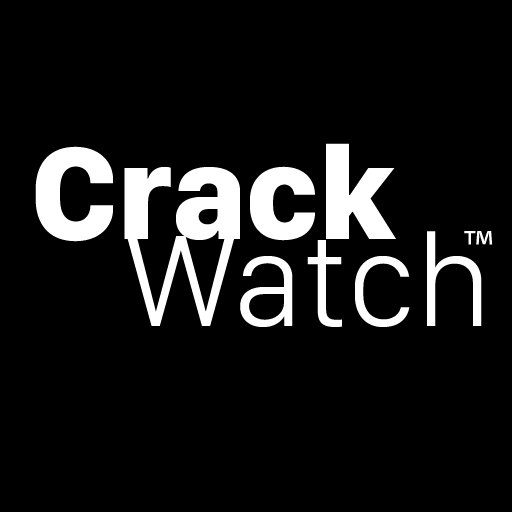- 3 Posts
- 212 Comments
- Mic_Check_One_Two@reddthat.comto
 1·1 year ago
1·1 year agoI’d be curious to see the results broken down by image generator. For instance, how many of the Midjourney images were correctly flagged as AI generated? How does that compare to DALL-E? Are there any statistically significant differences between the different generators?
- Mic_Check_One_Two@reddthat.comto
 20·1 year ago
20·1 year agoYes, though it was unclear if that was a feature or a bug. Since their dev team was decimated, the site has been struggling to even do basic maintenance and security updates. It’s entirely possible that was a bug, especially since it only appeared to be happening with certain users and servers.
Yeah, I used to work a job where I was basically on call for 6 hours at a time, but didn’t need to do much unless something broke. I’d help set things up at the top of the day then tear things down at the end. But in between, I was basically just waiting for things to break. It’s safe to say that I used the fuck out of my gaming laptop and VPN at my desk. Because I obviously didn’t want to try playing games on a company computer.
I played a lot of single player and idle games at that job, because those are easy to walk away from at a moment’s notice. Just hit pause and you can give your full attention to whatever problem has popped up. Then once it’s resolved, you’re right back where you left off.
- Mic_Check_One_Two@reddthat.comto
 13·1 year ago
13·1 year agoCheck which community you’re on rofl
- Mic_Check_One_Two@reddthat.comto
 3·1 year ago
3·1 year agoWhich is really just the first scenario (walking out of the donut shop and being accused of theft) in a trench coat. That scenario has already been covered, so my original “that’s pretty much the only two reasons” statement still applies.
- Mic_Check_One_Two@reddthat.comto
 3·1 year ago
3·1 year agoWhat kind of department stores are you shopping in that have donut shops in the middle of them? And do you think they’d actually try to enforce a receipt check for a donut that you’ve already eaten and they have no way of knowing you bought (unless they watched you buy it, in which case they already know you paid for it.)
Lastly, unless the store has some sort of membership program (like Costco or Sam’s Club) then you don’t actually have to stop for the receipt check. They can’t legally stop you from leaving, because it’s kidnapping if they try to stop you and you haven’t stolen anything.
- Mic_Check_One_Two@reddthat.comto
 52·1 year ago
52·1 year agoThere has been a lot of progress recently due to the SteamDeck, but it’s still not as good as Windows gaming. There are a few outlier examples where games run better on linux, but those are few and far between. Give it another few years, and hopefully things will improve even more.
- Mic_Check_One_Two@reddthat.comto
 4·1 year ago
4·1 year agoIf you’re accused of a crime that happened across town while you were at the donut shop, you could prove that you were at the donut shop (and not at the scene of the crime) when the crime occurred.
Aside from those two scenarios, that’s pretty much the only reasons you’d need a receipt for a donut.
- Mic_Check_One_Two@reddthat.comto
 42·1 year ago
42·1 year agoOpen exactly one email. Don’t bother reading it; That would put you into overtime. But you can at least commit to opening the email and waiting for it to load before you clock out for the year.
I propose that we begin referring to any type of MRA as “boy love” instead.
- Mic_Check_One_Two@reddthat.comto
 10·1 year ago
10·1 year agoThe issue is that schools have been using detectors to flag AI essays. When students (wrongly) get caught up in them, they get penalized even if they never used any AI to help them write the essay in question. Sort of like a plagiarism filter falsely flagging a paragraph as plagiarized, even if the student didn’t plagiarize it.
- Mic_Check_One_Two@reddthat.comto
 121·1 year ago
121·1 year agoBeing Hindu is relevant because Hindus believe cows are sacred. They believe that in the cycle of reincarnation, cows are the lowest form of creature that you can be reincarnated into. So taking care of cows is seen as a holy act, the same way taking care of the homeless or stray animals could be considered noble and selfless. Lots of their religious imagery and stories also involves butter and cream. Eating beef is taboo, and many Hindus take it a step farther and are fully vegetarian.
So with context, it’s sort of like forcing a Hasidic Jew to eat pork; It serves no purpose other than to humiliate them and denigrate their religion.
- Mic_Check_One_Two@reddthat.comto
 3·1 year ago
3·1 year agoHistorically, games would refuse to boot unless you had the game disc inserted. Even if the game was fully installed and didn’t need the disc to run, requiring the disc was a primitive form of DRM.
One of the most common forms of cracks was a NoDisc crack, which did exactly what it says on the label; It removed the requirement for you to insert a disc. This was usually just a quick file replacement. So it was easy to take the game disc to your buddy’s house, use it to install the game on their computer, apply the NoDisc crack, and then your buddy could play the game whenever they wanted without using your disc. This was many people’s first intro to piracy. Obviously game publishers hated this, and constantly played whack-a-mole to shut them down. On the data preservation and user friendliness side of things, NoDisc cracks were popular because they allowed you to play your games without digging through your giant book of CD’s. It also meant you weren’t locked out of a game just because your little sibling scratched your CD.
When transitioning to digital sales, the disc requirement obviously won’t work. You can’t require a disc when the user never actually received a disc. So the game publishers had to remove the disc requirement when they put their game up for sale on Steam. And this is showing that in the official Steam release, a pirate’s signature is found. They simply used a NoDisc crack (from one of the crackers that they had constantly been battling) on their own game, to remove the disc requirement. Instead of finding an “official” way to do it, they just used the most straightforward route.
And yet game publishers still constantly harp about piracy.
- Mic_Check_One_Two@reddthat.comto
 5·1 year ago
5·1 year agoIIRC it didn’t end with the wiishop either. Off the top of my head, there was some controversy surrounding the NES/SNES Classic consoles. I think they used emulators that were written by pirates, instead of writing their own?
- Mic_Check_One_Two@reddthat.comto
 31·1 year ago
31·1 year agoWas going to say the same. Windows and Linux both use “lazy” ways of deleting things, because there’s not usually a need to actually wipe the data. Overwriting the data takes a lot more time, and on an SSD it costs valuable write cycles. Instead, it simply marks the space as usable again, and removes any associations to the file that the OS had. But the data still exists on the drive, because it’s simply been marked as writeable again.
There are plenty of programs that will be able to read that “deleted” content, because (again) it still exists on the drive. If you just deleted it and haven’t used the drive a lot since then, it’s entirely possible that the data hasn’t been overwritten yet.
You need a form of secure delete, which doesn’t just mark the space is usable. A secure delete will overwrite the data with junk data. Essentially white noise 1’s and 0’s, so the data is completely gone instead of simply being marked as writeable.
- Mic_Check_One_Two@reddthat.comto
 12·1 year ago
12·1 year agoYeah, the sticky posts thing is especially annoying. Okay, I’ve already read this admin announcement. I don’t need to see it every single time I open the app.
- Mic_Check_One_Two@reddthat.comto
 71·1 year ago
71·1 year agoPretty much. Lock him in an isolated prison cell, being guarded by Secret Service members with Top Secret clearance. It’s the only way to prevent him from blabbing Top Secret intel to whichever prison guards will listen.


9 was skipped because there was concern with old/lazily coded programs running in compatibility mode for Windows 9x versions.
Basically, when the windows versions went from Win95/98/ME to 2000 and XP, some lazy programmers went “well by the time Windows 2090 rolls around I’ll be dead” and just had their programs check the windows version for a 9 when deciding whether or not to run in compatibility mode. If it detected a 9, then it would run in compatibility for 95/98/ME.
Microsoft wanted to avoid this potential issue, so they just skipped version 9 altogether and jumped straight to 10.